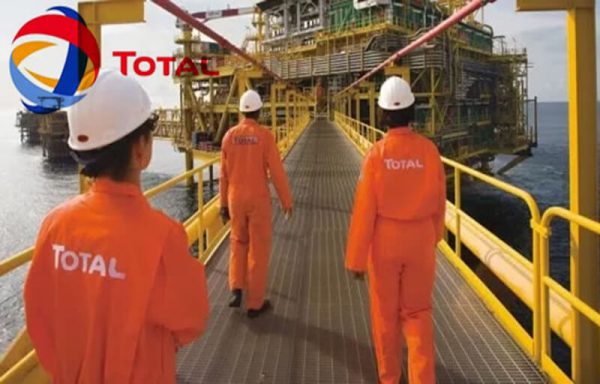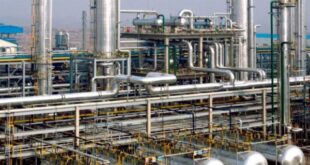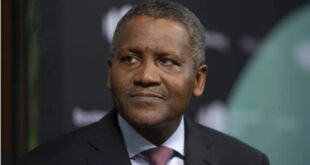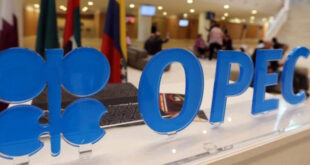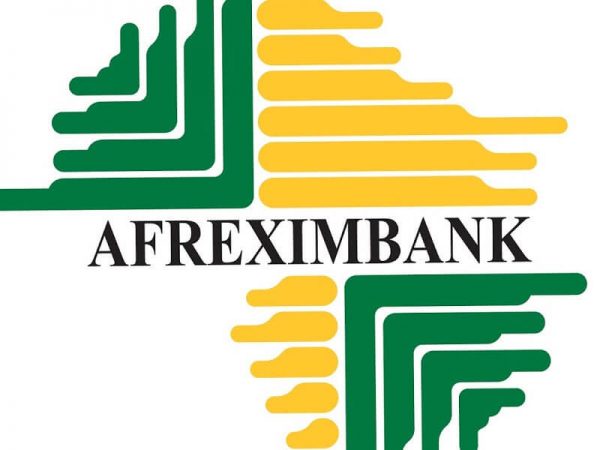. Crude oil price drops as Saudi, Russian output rises
• NCDMB audits remittances to $200m local content fund
The $3.3 billion Floating Production Storage Offloading (FPSO) unit for the 200,000 barrels per day capacity Egina Deepwater oilfield, which arrived in Lagos in January this year from South Korea, will finally depart to the Egina oilfield in the coming weeks.
This is coming as oil prices fell Monday as supplies from Saudi Arabia and Russia rose, while economic growth stumbled in Asia amid an escalating trade dispute with the United States.

The Deputy Managing Director in charge of Deep Water at Total Exploration and Production Nigeria, Mr. Ahmadu-Kida Musa, said Monday in Abuja at the 2018 edition of the Nigeria Oil and Gas Conference and Exhibition (NOG) that the Egina field would account for 10 per cent of Nigeria’s crude oil production.
Musa explained that the FPSO, which had the detailed engineering of its topsides executed in-country after it arrived from South Korea, by Samsung with a consortium of Nigerian engineering companies, will sail away to Egina field, located in Oil Mining Lease (OML) 130, approximately 150 kilometres offshore, Port Harcourt.
According to him, the field is expected to begin producing 200,000 bpd of oil from the field.
“Egina is the latest of Total’s deepwater developments and the third project of its kind developed by Total in Nigeria, after Akpo and Usan. These projects have brought progressive increase in levels of Nigerian Content and this is well illustrated by the percentage of total project workload performed in Nigeria: from 44 per cent for Usan, Total recorded 60 per cent for Akpo and now 77 per cent will be achieved for Egina, just before the FPSO sails away from the SHI-MCI Yard in LADOL Island, Lagos where it is currently moored for topsides integration works,” said Musa.
“In the coming weeks, the FPSO will sail away to Egina field, which is located in OML 130, approximately 150 kilometres offshore Port Harcourt,” he explained.
He added: “It is the deepest offshore development carried out so far in Nigeria, in water depths of over 1,500 metres and the project is designed to produce 200,000 barrels per day of oil at plateau.
“In addition to the oil, the Egina field will produce gas. Associated gas will be partly re-injected into the reservoir to maintain reservoir pressure, and partly channelled to supply the domestic gas market.”
He explained that Nigeria was proud Egina has advanced its local content policy to new levels in many domains, adding that it, amongst others, led to the development of a new fabrication and integration yard which is reportedly Africa’s first FPSO integration quay.
“It was, constructed under the FPSO package contract by SHI-MCI, within Lagos deep offshore logistics base on LADOL Island. Today, the Egina project is proudly the first to record the fabrication and integration of FPSO topsides in Nigeria. Six of the 18 topside modules were fabricated and integrated at the SHI-MCI facility at LADOL. The Egina FPSO arrived from Korea in the last week of January for the integration of the locally fabricated modules and this integration was successfully completed in May, without incident,” he added.
Meanwhile, the Executive Secretary of the Nigerian Content Development Monitoring Board (NCDMB), Mr. Simbi Wabote, has said that the board would take measures to ensure that operators who participate in its $200 million local content fund do not end up abusing the process and subsequently deflating the fund.
Wabote, in his presentation at the conference, also said the board has concluded to hand over to the Economic and Financial Crimes Commission (EFCC) and Independent Corrupt Practices and Other Related Offences Commission (ICPC) any operator who failed to remit what was due to it as requested by the local content law.
He noted that the board was undertaking a forensic audit of the remittances and had engaged the country’s judicial sector on how the local content law works with regards to such remittances to it.
“We were told by the agencies responsible for financial crimes that not remitting government fund in itself is a financial crime as it is contained in their acts, and as such, when we carry out this forensic audits, if we discover any breach of the processes, of course, we will hand over such to the agencies responsible to go after companies that want to sabotage the economy. The EFCC and ICPC will be responsible to go after such people who decides that they will not remit what is due government in terms of law,” he said.
However, oil prices fell Monday as supplies from Saudi Arabia and Russia rose while economic growth stumbled in Asia amid an escalating trade dispute with the United States.
The global benchmark, Brent crude oil fell $1.24 per barrel to a low of $77.99 before recovering to $78.53, while the US light crude was down at $73.95 per barrel.
Oil prices rose strongly last week, with the US crude contract hitting its highest in three and a half years at $74.46.
But Reuters reported that a flurry of US announcements over the weekend unsettled oil markets.
President Donald Trump tweeted on Saturday that Saudi Arabia’s King Salman bin Abdulaziz Al Saud had agreed to pump more oil, “maybe up to 2,000,000 barrels”.
The White House later walked back on the comments.
Saudi Arabia’s output is up by 700,000 barrels per day (bpd) from May, a Reuters survey showed, and close to its 10.72 million bpd record from November 2016.
Russian output rose to 11.06 million bpd in June from 10.97 million bpd in May, the Energy Ministry said Monday.
US production has soared 30 per cent in the past two years, to 10.9 million bpd, meaning the world’s three biggest oil producers now churn out almost 11 million bpd each, meeting a third of global oil demand.
Also weighing on oil demand are trade disputes between the United States and other major economies, including China, the European Union, India and Canada.
China, Japan and South Korea all reported slowdowns in export orders in June amid escalating trade disputes with the United States.
“Recurring salvos in the trade war and falling asset prices raise the question of how much tariffs could damage the global economy,” US bank, JPMorgan said.
The bank added that a “medium-intensity (trade) conflict would likely reduce global economic growth by at least 0.5 per cent, “before accounting for tighter financial conditions and sentiment shocks”.
Despite the relief from Saudi Arabia and Russia, oil markets remain tense because of unplanned outages from Canada to Venezuela and Libya.
Looming US sanctions against Iran further contribute to expected tightness.
Trump threatened in an interview that aired on Sunday to put sanctions on European companies that do business with Iran.
“The Trump administration’s plan for Iran sanctions is now abundantly clear. They seek to push Iranian exports of crude, condensate, and oil products to zero,” energy consultancy FGE said in a note.
 MMS PLUS NG – Maritime, Aviation, Business, Oil and Gas News Online Newspaper with coverage in Maritime, Oil and Gas, Aviation, Power and Energy as well as Financial News
MMS PLUS NG – Maritime, Aviation, Business, Oil and Gas News Online Newspaper with coverage in Maritime, Oil and Gas, Aviation, Power and Energy as well as Financial News

